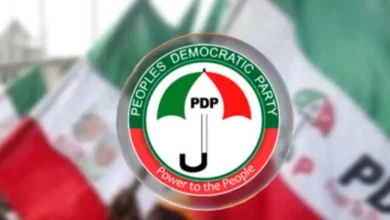
The Dangote Petroleum Refinery has announced a sweeping new initiative that includes the free distribution of petroleum products including Premium Motor Spirit (PMS), diesel, and aviation fuel to key sectors across Nigeria. The move is expected to ease inflation, improve fuel accessibility, and significantly reduce the role of intermediaries in the downstream oil and gas sector.
In a statement released Tuesday by the Dangote Group’s media team, the refinery confirmed it would deploy 4,000 new Compressed Natural Gas (CNG)-powered tankers nationwide. The fleet will deliver products directly to marketers, filling station operators, manufacturers, telcos, aviation firms, and other large-scale consumers.
Tackling Logistics, Fuel Prices, and Unemployment
The Group says its strategy is designed to lower fuel distribution costs, a major contributor to high pump prices especially in rural Nigeria and to generate up to 8,000 new driving jobs in its initial phase.
“Logistics currently account for between 10% and 30% of fuel prices,” noted energy analyst Ibukun Phillips, who described the move as “revolutionary.”
“By absorbing logistics costs, Dangote’s plan could reduce pump prices and revive disused rural filling stations, which often suffer from supply gaps.”
Public affairs analyst Abimbola Oyarinu echoed these sentiments, saying the initiative could disrupt the influence of powerful intermediaries who have historically manipulated supply for personal gain.
“This has the potential to dismantle the dominance of tanker driver unions and other middlemen who’ve held the sector hostage,” he said.
“If it translates to cheaper fuel, it will help fight inflation one of Nigeria’s most pressing economic challenges.”
Addressing Structural Gaps, Defending Against Monopoly Fears
While some stakeholders have raised concerns about the refinery becoming a monopoly, experts argue the greater threat lies in Nigeria’s broken logistics and regulatory systems.
“The real issue isn’t monopoly; it’s inefficiency,” said Kelvin Emmanuel, energy expert and co-founder of Dairy Hills.
“Marketers aren’t making real money from N5 to N15 per litre margins. They’ve survived by exploiting price gaps and importing substandard fuel that doesn’t meet the PIA’s sulphur limits.”
He also disclosed that the Nigerian Midstream and Downstream Petroleum Regulatory Authority (NMDPRA) owes independent marketers ₦1.8 billion in unresolved bridging claims a backlog that further distorts distribution efficiency.
“Dangote is filling the gap left by regulatory and infrastructural failures,” Emmanuel added.
“The free transport offer is a short-term fix to bypass systemic bottlenecks and ensure national fuel access.”
Environmental, Economic and Consumer Impact
The use of CNG-powered tankers is not just a cost-saving measure, but part of a broader push for environmental sustainability, according to the company. These vehicles emit fewer pollutants than diesel trucks and are expected to serve as a blueprint for cleaner energy logistics in Africa.
In the long term, analysts believe this model if scaled properly could stabilise fuel prices, reduce inflationary pressure, and offer a template for inclusive, efficient energy distribution in other sectors.





